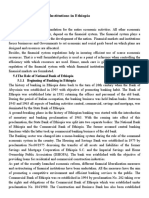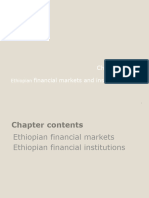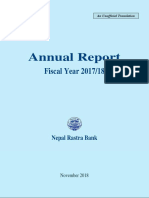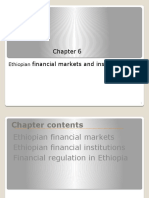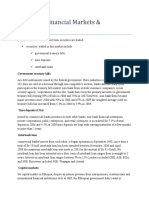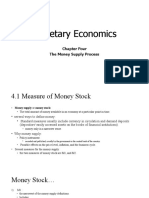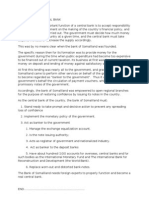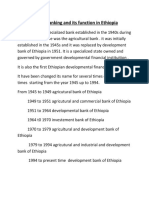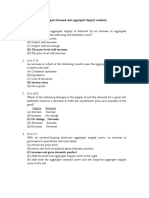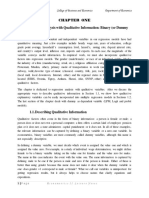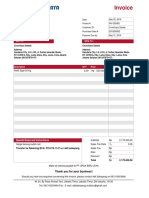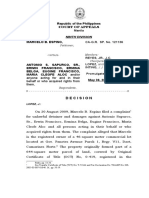0% found this document useful (0 votes)
242 views16 pagesChapter 6
The National Bank of Ethiopia was established in 1943 and acts as the central bank. Its mission is to maintain price and exchange rate stability while fostering economic growth. It has evolved over time, starting from earlier banks established in 1906. The NBE regulates monetary policy and financial institutions through tools like interest rates, reserve requirements, and open market operations. Obtaining a banking license requires meeting capitalization, ownership, and planning requirements.
Uploaded by
bikesCopyright
© © All Rights Reserved
We take content rights seriously. If you suspect this is your content, claim it here.
Available Formats
Download as PPTX, PDF, TXT or read online on Scribd
0% found this document useful (0 votes)
242 views16 pagesChapter 6
The National Bank of Ethiopia was established in 1943 and acts as the central bank. Its mission is to maintain price and exchange rate stability while fostering economic growth. It has evolved over time, starting from earlier banks established in 1906. The NBE regulates monetary policy and financial institutions through tools like interest rates, reserve requirements, and open market operations. Obtaining a banking license requires meeting capitalization, ownership, and planning requirements.
Uploaded by
bikesCopyright
© © All Rights Reserved
We take content rights seriously. If you suspect this is your content, claim it here.
Available Formats
Download as PPTX, PDF, TXT or read online on Scribd
/ 16
